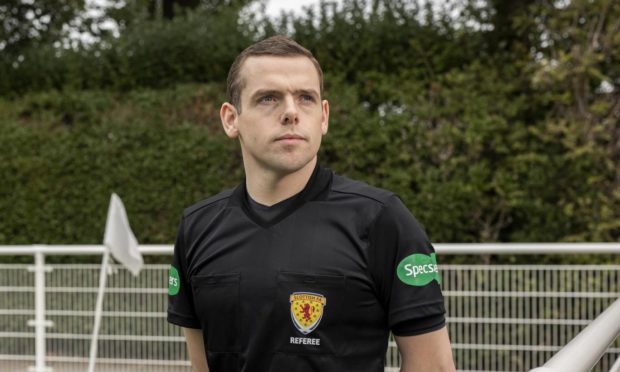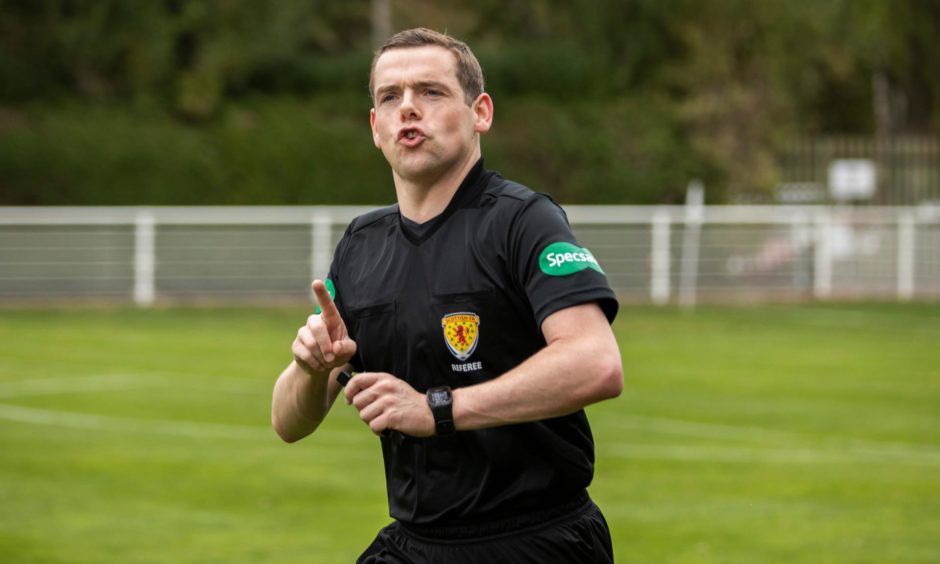Bringing football’s World Cup final to Scotland for the first time is among the Conservatives’ election promises to fix the country’s mental health crisis.
The party believes encouraging physical activity is one of the keys to easing the strain on psychiatric and psychological services as we recover from the pandemic.
Gyms would be reopened immediately, funding for leisure centres improved, £1 million spent opening more school facilities to the public and cash for Sport Scotland doubled, under a series of election pledges unveiled today.
And the plans include backing the bid to bring the showpiece finale of the world’s biggest sporting event to Hampden in 2030 alongside a strategy to boost grassroots football in the years running up to the tournament.
Party leader Douglas Ross said it was vital to encourage more people to take up sports both for mental and physical health and suggested it was perfectly possible Glasgow could be the venue for an inspirational occasion such as the World Cup final.
Mr Ross, an assistant referee in the SPFL who gave up the chance to officiate at a world cup amid controversy over his priorities after becoming an MP, said: “It would be great for Scotland to host such a showpiece event.
“It is an opportunity, it is possible. Hampden has shown it can handle major showcase international footballing events in the past and I think it can host a World Cup final as well.
“I’ve been fortunate to be at a number of national finals, Hampden is a great venue when it is full and one team are celebrating a win and another commiserating. To see the World Cup final would be very special and who knows, if the men’s team keep qualifying for tournaments there is also a chance Scotland might be there.”
The Scottish Tories’ proposals also include an increase in the share of the health budget spent on mental health services, from 8.1% to 10% over the course of the next parliament and the expansion of community mental health provision, including cognitive behavioural therapy, social prescribing, exercise referral schemes and peer support services.
We've joined the @ScottishFA, @FAWales, @OfficialIrishFA and @FAIreland in welcoming the government's pledge of £2.8million towards a potential bid for the 2030 @FIFAWorldCup:
— The FA (@FA) March 1, 2021
Tayside mental health and drug abuse concerns
Readers of this paper were recently polled in an extra large survey by Survation.
One of their top concerns was the future of mental health services and health care provision (and the NHS), ahead of Scottish independence and the environment.
During a recent inquiry into how services are provided in Tayside, experts felt the area’s other crisis — drug deaths — should be treated in conjunction with mental health.
When asked if the mental health should be treated in conjunction with Scotland’s drugs death shame, Mr Ross said the crisis should be treated as a public health issue, but that the Scottish Conservatives would not back decriminalisation.
“I do agree drug deaths and issues with drugs should be treated as a public health issue, and our response should be a public health one.
“But I don’t agree that means decriminalising drugs.
“We need to continue to show the serious consequences of taking drugs and that’s why they should remain an illegal substance.
“In terms of mental health and drug abuse, and the record number of drugs deaths in Scotland, I agree it is an issue. It is why we are proposing an increase in funding for mental health services and why we campaigned so rigorously to get an increase in the budget for rehab beds in Scotland.
“We saw what the cuts (to rehab beds) had in Scotland made previously by the SNP government.
“That is why we started to build back up the proportion of funding for rehab facilities in Scotland.
“There is not a single silver bullet which will tackle drugs deaths and drugs misuse in Scotland.
“But I am not convinced by arguments on drug consumption rooms. I know others are but looking at the unofficial trial in Glasgow, I don’t think the way to get people off drugs is to allow them to continue to take them, albeit in different circumstances.
“The best way is through rehab facilities, more rehab beds and that’s why I welcome getting that funding being reintroduced.
“I’m never a closed book on these issues, however. I will always look at emerging evidence from around the world. I know places including Portugal has done a lot on this and I know we have looked at this at a UK level through the Scottish select committee.
“But I am not convinced consumption rooms are the right way to go but I will always look at emerging evidence regarding them.”
There would be no additional funding for mental health and rehabilitation services in prisons, Mr Ross said when questioned. He added an increase in overall spending would see more money going to prison services, however.
Jumpers for goalposts
Mr Ross said the proposals would try and encourage as many young people as possible into sport and exercise, denying that the policies focused more on those from more affluent backgrounds.
He added: “Our increase in SportScotland funding is directed at both those performing at an ‘elite level’ and also at grass-roots.
“We want to encourage people to take up sport, a young person might take up football but find they prefer running, so might change to athletics.
“Yes it is expensive to get in to some sports, but I wouldn’t say it is expensive to take up football, necessarily. There are opportunities through sponsorship. I remember from my younger days, you would put a couple of jumpers down and kick a ball between (them).
“I know the ball itself can now be more expensive than when I grew up, but by putting in money at a grass-roots level it gives people an opportunity to choose a sport they are interested in and develop some skills.
“A set of golf clubs or tennis racquet, I know that is not cheap, there are different costs for different sports. But we need to encourage people in to begin with.
“Then hopefully we can look at that next challenge in terms of how expensive or otherwise it is once we get them into a sport that improves their physical and mental health.”
He added: “We need to look at all manner of policies in improving mental health.
“The important thing behind that is making sure it receives an increase in funding. It currently sits at around 8.1% of the health budget…an increase to 10% would see an increase in the amount of money directed, whether that is nurses in GP practices or more in schools. Whatever we do, it always comes down to paying for it.”



